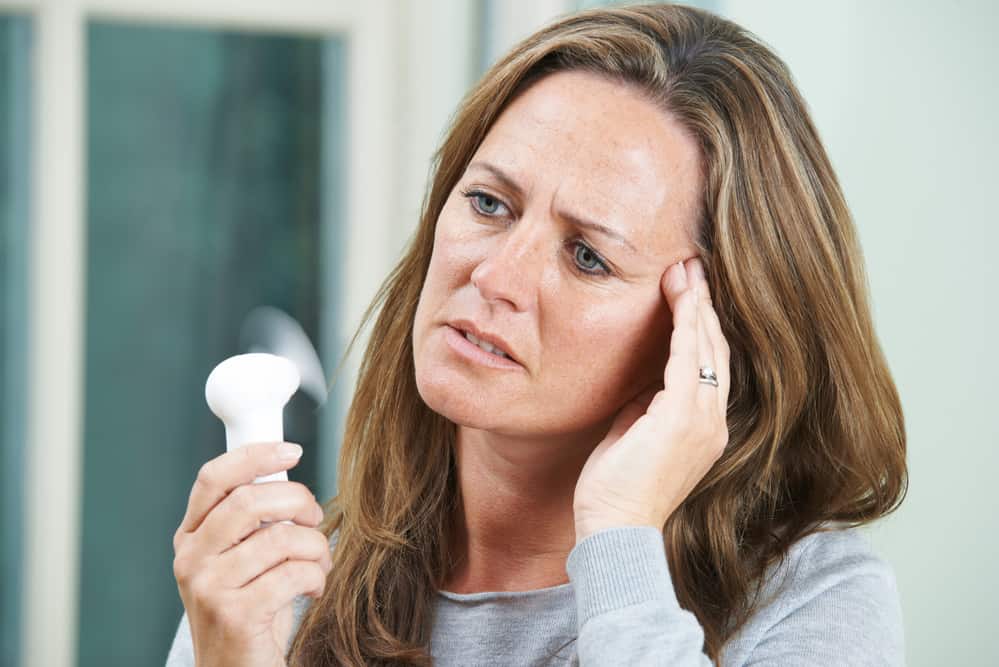Menopause is a natural phase in every woman’s life, typically occurring between the ages of 45 and 55. This biological transition brings about numerous changes in a woman’s body, including the cessation of menstruation and a decrease in hormone production, particularly estrogen. While menopause is a normal part of aging, it often comes with a range of uncomfortable symptoms that can disrupt daily life.
This blog will explore lifestyle changes that can help ease menopause discomfort, with a focus on holistic approaches to promote overall well-being. Whether you’re experiencing hot flashes, mood swings, or sleep disturbances, these strategies can make your journey through menopause more manageable.
Understanding Menopause Discomfort
Menopause discomfort encompasses a wide array of physical and emotional symptoms. While the intensity and duration of these symptoms vary from woman to woman, they often include:
- Hot Flashes: Sudden, intense feelings of heat accompanied by sweating and rapid heartbeats.
- Night Sweats: Episodes of excessive sweating during the night, leading to disrupted sleep.
- Mood Swings: Fluctuations in mood, including irritability, anxiety, and even depression.
- Vaginal Dryness: A common symptom that can lead to discomfort during sexual intercourse.
- Sleep Disturbances: Insomnia or restless sleep patterns, often linked to night sweats.
- Weight Gain: Hormonal changes can lead to increased abdominal fat and changes in metabolism.
- Memory and Concentration Issues: Often referred to as “brain fog,” this can impact cognitive function.
- Joint and Muscle Pain: Some women experience joint pain and stiffness.
While these symptoms can be challenging, it’s important to remember that menopause is a natural process and not a disease. With the right lifestyle adjustments and support, you can minimize the discomfort and make this transition smoother.
Lifestyle Changes for Managing Menopause Discomfort
1. Dietary Modifications
- Balanced Nutrition: Focus on a well-balanced diet rich in fruits, vegetables, whole grains, and lean protein sources. This can help maintain a healthy weight and provide essential nutrients for overall well-being.
- Calcium and Vitamin D: To support bone health, incorporate calcium-rich foods like dairy products, leafy greens, and fortified foods. Vitamin D aids in calcium absorption and can be obtained through sunlight exposure or supplements.
- Phytoestrogen-Rich Foods: Foods like soy, flaxseeds, and legumes contain natural compounds called phytoestrogens that may help alleviate menopausal symptoms.
- Limit Caffeine and Alcohol: Reducing caffeine and alcohol intake can help manage hot flashes and improve sleep quality.
2. Regular Exercise
Engaging in regular physical activity offers several benefits during menopause, including:
- Weight Management: Exercise can help prevent weight gain or promote weight loss.
- Stress Reduction: Physical activity releases endorphins, which can improve mood and reduce stress.
- Bone Health: Weight-bearing exercises, such as walking, jogging, and weightlifting, help maintain bone density.
- Better Sleep: Regular exercise can promote better sleep patterns.
Aim for at least 150 minutes of moderate-intensity exercise or 75 minutes of vigorous-intensity exercise each week, along with muscle-strengthening activities on two or more days.
3. Stress Reduction and Relaxation Techniques
High stress levels can exacerbate menopause discomfort. Practicing stress reduction techniques can help manage symptoms:
- Yoga and Meditation: These practices promote relaxation, reduce stress, and improve sleep quality.
- Deep Breathing: Incorporate deep breathing exercises into your daily routine to reduce anxiety and enhance overall well-being.
- Progressive Muscle Relaxation: This technique involves tensing and then relaxing muscle groups to reduce physical tension.
- Mindfulness: Being present in the moment can improve mood and help you cope with menopausal symptoms.
4. Adequate Sleep
Prioritize good sleep hygiene to address sleep disturbances:
- Create a Sleep-Friendly Environment: Keep your bedroom dark, cool, and quiet.
- Establish a Routine: Go to bed and wake up at the same time every day to regulate your body’s internal clock.
- Limit Screen Time: Reduce exposure to screens before bedtime, as the blue light emitted can interfere with sleep.Avoid Heavy Meals and Caffeine Close to Bedtime: These can disrupt sleep patterns.
- Relaxation Techniques: Incorporate relaxation practices like meditation or progressive muscle relaxation to ease into sleep.
5. Hydration
Proper hydration is crucial, as it can help manage hot flashes and reduce the risk of urinary tract infections:
- Water: Drink plenty of water throughout the day.
- Limit Caffeine: Reduce caffeine intake, as it can contribute to dehydration.
6. Social Support
Share your experiences with friends and loved ones and consider joining a support group for women going through menopause. Connecting with others who understand what you’re going through can provide valuable emotional support.
7. Mind-Body Therapies
Explore mind-body therapies like acupuncture, acupressure, and aromatherapy. While more research is needed to establish their effectiveness, some women find relief from menopausal symptoms through these approaches.
8. Hormone Replacement Therapy (HRT) and Alternative Therapies
Discuss the pros and cons of hormone replacement therapy with your healthcare provider. HRT can effectively manage menopause symptoms but carries certain risks. If you’re hesitant about HRT, consider alternative therapies like herbal supplements (e.g., black cohosh) or bioidentical hormone therapy, though their efficacy varies.
Conclusion
Menopause discomfort is a common experience for women as they age, but it doesn’t have to be overwhelming. By making lifestyle changes that prioritize nutrition, exercise, stress reduction, and self-care, you can significantly ease the symptoms associated with menopause discomfort. Remember that every woman’s journey through menopause is unique, so it’s essential to consult with a healthcare provider to determine the best approach for your individual needs. With the right strategies and support, you can embrace this new phase of life with confidence and comfort.
Consult with our experts here at BodyWise Specialists, who specialize in menopause and treatment for it. Our team of experienced professionals is dedicated to helping you navigate the menopausal transition with care and expertise.
Make an appointment with us today to take the first step towards a happier, healthier, and more vibrant menopausal journey.


